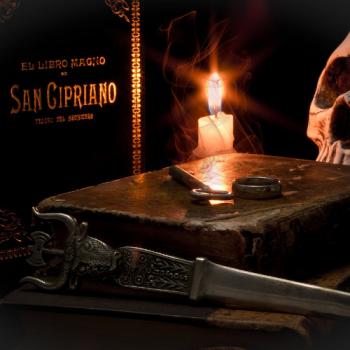
Hestia, you who tend the holy house of the lord Apollo, the Far-shooter at goodly Pytho, with soft oil dripping ever from your locks, come now into this house, come, having one mind with Zeus the all-wise — draw near, and withal bestow grace upon my song. – Homeric Hymn #24 to Hestia
Those who are familiar with the Neo-Pagan Wheel of the Year know that the beginning of February is the traditional time of year for celebrating Imbolc, the festival celebrating hearth and home, the beginnings of spring, and the lengthening days. While this festival does indeed have its Celtic roots and background, some people have taken this idea of honoring hearth and home around this time of year and incorporated it into their modern Hellenic polytheistic practice. There is at least one initiatory Wiccan trad which honors the Greek gods and honors Hestia around this time of year as well, and I am a member of that tradition.
Hestia is the Greek goddess of hearth and home. Offerings to her were done both “first and last”, and some Hellenists have chosen to give her offerings first during the ritual and last during the after ritual meal as their interpretation of this custom. She is the goddess who presides over all of the sacrifices done for the gods and is in charge of preparing the family meal. The sacred fire of the altar was–and is–hers, and while there were few temples to her in antiquity, Hestia existed everywhere by assumption.
There were no sacrifices that did not include her, as the goddess is essentially the gateway to all of the gods via all sacrifices and sacred flames dedicated to them. This included all sacred fires: ones lit at personal altars and shrines, household hearths, and fires lit at the center of cities. It is not without irony that such an overlooked goddess in the modern polytheist world is actually one of the most important.
Traditional offerings to her included water, wine, fruit, and oil–most likely olive oil.
You can read more about Hestia at Theoi.com, and there is a wonderful anthology on her by Bibliotecha Alexandrina.
















